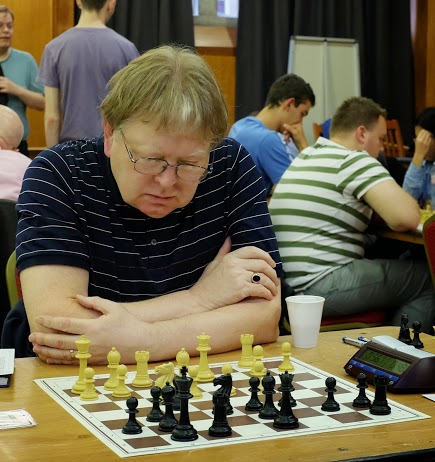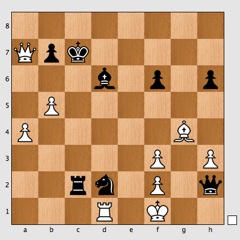Why Play Chess?
David is a chess junkie! He knows it and he can’t help it.

The last few weeks have been no different. Two weekends ago he was trying to out-psych his opponents in a five round competition in Bury St Edmunds. A weekend during which he didn’t lose, but won only one of his five games, drawing four. One of the interesting people he met on the road was Paul Bennett who is walking from Horton-on-Sea on the east coast to St Michael’s Mount on the west coast, raising money and awareness for homeless charity Shelter. Oh and he’s doing it on stilts!
Last Wednesday, David was playing down at the Hurst Community Centre for Sidcup Chess Club who were matched-up with their rivals from Charlton in the En Passant Cup. Sidcup won the match 3½-2½ with David contributing a full point. In case you’re wondering En passant means ‘in passing’. It’s a special chess move where a pawn takes a opponent’s pawn either on the third or sixth rank. Not many non-players know about this! Why should they?
Talking about non-chess players, David says the question they usually ask is “how far ahead do you calculate?”. Like most things in chess, it’s not a simple answer. David explains that whilst it’s possible to calculate lots of moves ahead when there are only a few bits left on the board there’s not much point at the beginning when there are loads of pieces. “If there’s no forcing move it’s best to think about how to improve the position of your pieces to make them more active” he advises.
Last weekend David was off to Imperial College playing in the Minor event. He’s about the middle rated person in his section. On Friday evening he starts against a junior aged about 8. And the kid can play! He also seems to be a champion noodle-eater, sucking-up strands a foot-long from beneath the table! Chess is probably the only competition where children and adults compete on equal terms.
But David comes through and by the end of Saturday he sits at the top of the section with three wins from three games. On Sunday morning he’s matched up with the tied-second placed player who is half-a-point behind. After three intense hours the game ends in a draw. David goes into the final round to play the other joint leader a wily senior.
“Not my best game” David confesses afterwards. “But I found a trick that he bit, hook, line and sinker. He then missed an opportunity to draw with a perpetual check, but in the end it all fell into place for me.” David won the £120 first prize. “It’s hardly going to make me rich.” It’s David’s second win this year after finishing on top at Worcester in July.

From David’s final round game.
In this position White is in check. The game ends with:
1. Ke2 Qe5+ 2. Qe3 Nc4+ 3. Rd2 Rxd2+ and White resigns he’ll be check mated in three moves.
However, from the diagram White could have drawn with:
1. Rxd2 Rxd2 2. Qa5+ b6 3. Qa7+ and Black can’t stop White’s ad infinitum checks.
It doesn’t end there. David’s chess life continues next weekend when he’ll be off to Scarborough. It’s one of the biggest events of the year with some 400 players doing battle over the board in five graded sections, catering for beginners right up to grand masters.
Why play Chess? Well it’s the beautiful game. The adrenaline washes through and winning just feels so good! Get down to the Hurst Community Centre on a Wednesday evening from 7.30pm and find out more.
David Gilbert